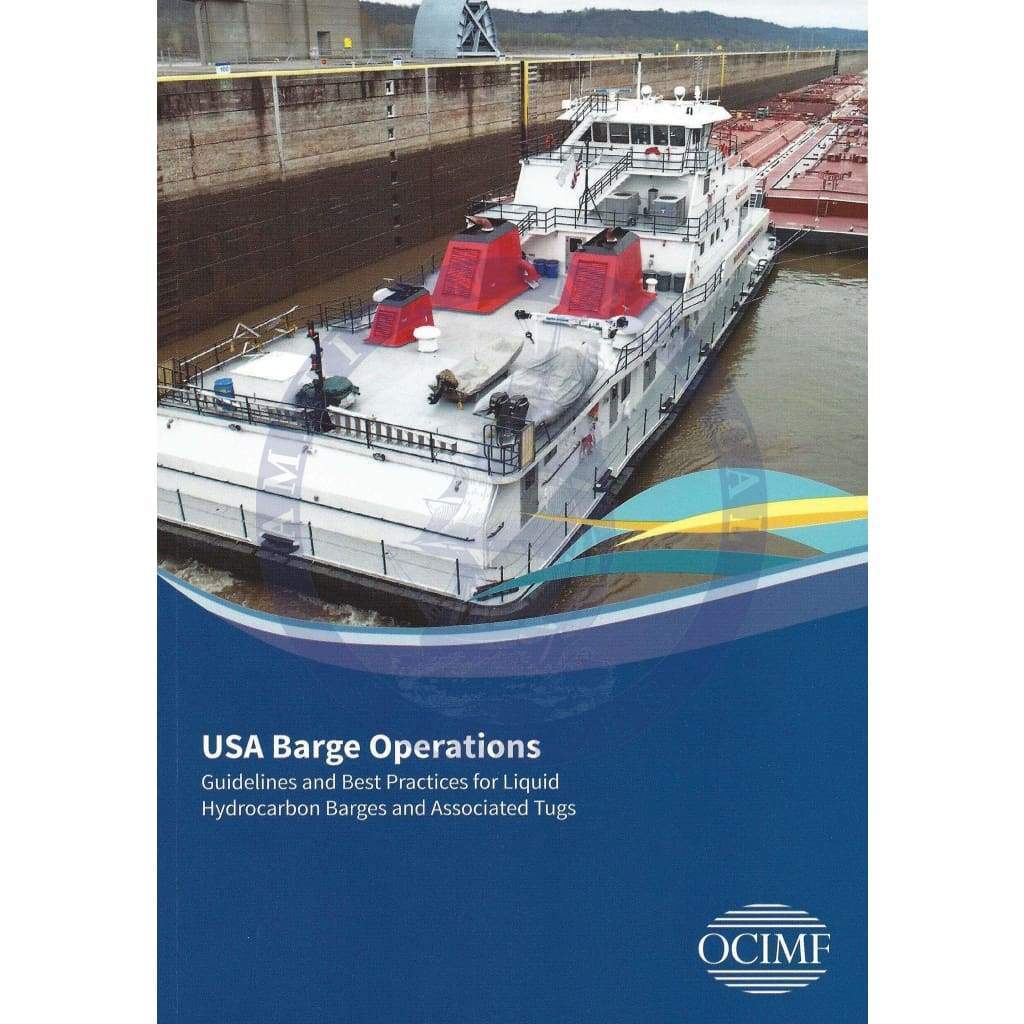
Overview
This guide describes recommended best practices for managing and operating ocean and inland barges, towboats and tugs that carry and transport crude oil and petroleum products in bulk. The focus is on operations within the USA, but much of the guidance may be relevant to barge operations in other parts of North America and in other regions.
The guide builds on the recommendations in accepted industry publications, such as the International Safety Guide for Oil Tankers and Terminals (ISGOTT). Additionally, this guide is intended to complement any applicable international conventions, national legislation, local laws and Classification Society rules.
Although the guide is primarily intended for use by tug and barge operators, it may also be of interest to prospective charterers, oil company vetting departments, terminal staff and government officials.
A generic guide such as this is not specific to all types of vessels in all locations. Readers should decide carefully whether to apply the guide in particular circumstances.
References within the guide to particular codes should be checked to verify that only the latest editions of the codes are used.
Content
Introduction
Glossary
Abbreviations
Bibliography
Section One
Safety management
1.1 Safety management system
1.2 Drug and alcohol policy
Section Two
Certification and documentation
2.1 Requirements and recommendations
2.2 Documents and certificates
2.3 Insurance
Section Three
Crew management
3.1 Manning
3.2 Qualifications and training
3.3 Crew manning during cargo transfer operations
3.4 Preventing fatigue
Section Four
Security and vessel access
4.1 International Ship and Port Facility Security Code
4.2 Security arrangements in the USA
4.3 Access between vessel and shore
Section Five
Navigation, communications and electronics
5.1 Vessel operator’s navigation policy
5.2 Voyage planning and equipment testing
5.3 Bridge procedures and avoiding collisions
5.4 Nautical publications, charts and information
5.5 Navigation and communications equipment
Section Six
Cargo and ballast systems and procedures
6.1 Cargo handling equipment
6.2 Cargo handling procedures
6.3 Machinery rooms, pumphouses and pumprooms
6.4 Tank cleaning and gas freeing
6.5 Inert gas systems
6.6 Vapor recovery and venting
6.7 Material safety data
6.8 Static accumulator cargoes
6.9 Requirements for cargoes containing hydrogen sulfide
6.10 Hose handling booms and cranes
Section Seven
Bunkering operations
7.1 Overview
7.2 Bunkering operations
7.3 Vessel to vessel bunkering operations – additional considerations
Section Eight
Vessel to vessel transfers
8.1 Plans and procedures
8.2 Fenders
8.3 Transfer hoses
8.4 Communications
Section Nine
Pollution prevention and response
9.1 Emergency response
9.2 Cargo systems and spill containment
9.3 Inspecting and testing of cargo pipes and hoses
9.4 Spill response equipment
9.5 Oil record book
9.6 Garbage management plan
9.7 Vessel General Permit
Section Ten
Fire-fighting and safety equipment
10.1 Fire prevention
10.2 Fire-fighting equipment
10.3 Personal protective equipment
10.4 Lifesaving equipment
10.5 General alarm system
Section Eleven
Mooring and anchoring
11.1 Mooring
11.2 Anchoring
Section Twelve
Towing/pushing equipment and procedures
12.1 Tug design
12.2 Towing equipment and procedures – tugs
12.3 Towing equipment and procedures – barges
12.4 Tug fendering
12.5 Training and drills
Section Thirteen
Machinery spaces and systems
13.1 Maintenance
13.2 Equipment
13.3 Steering systems
13.4 Hazard control
Section Fourteen
Structural maintenance
14.1 Inspection and gauging
14.2 Corrosion control
Details
Title: USA Barge Operations: Guidelines and Best Practices for Liquid Hydrocarbon Barges and Associated Tugs
Number of Volumes: 1
Edition: First
Number of Pages: 124
Product Code: WS1416K
ISBN: ISBN 13: 978-1-85609-637-9 (9781856096379), ISBN 10: 1-85609-637-8 (1856096378)
Published Date: June 2014
Binding Format: Paperback
Book Height: 210 mm
Book Width: 147 mm
Book Spine: 7 mm
Weight: 0.40 kg
Author: Oil Companies International Marine Forum







